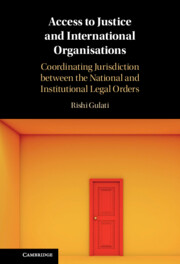The Effect of Choice of Court Agreements on Third Parties: Lecture by Professor Yeo Tiong Min
The Yong Pung How Professorship of Law Lecture 2022 will be held online on Wednesday 25 May 2022 at 5:00 to 6:30pm Singapore time. The speaker, Professor Yeo Tiong Min, SC (Hon), who holds the Yong Pung How Professorship of Law chair at the Singapore Management University, will speak on ‘ The Effect of Choice of Court Agreements on Third Parties’. The synopsis for the talk is as follows:
“The effect of choice of court agreements on the exercise of jurisdiction of the Singapore court between contracting parties at common law has received clarification in Singapore law in recent years. The position is also clear under the SICC Rules and the Choice of Court Agreements Act. The effect on third parties is less clear. In this lecture, the effect of choice of court agreements on the position of third parties under the legal regimes above will be considered, from the perspective of both conflict of laws and the Contracts (Rights of Third Parties) Act in domestic Singapore law.”
Attendance at the webinar is complimentary. More information and the link to register can be found here.


